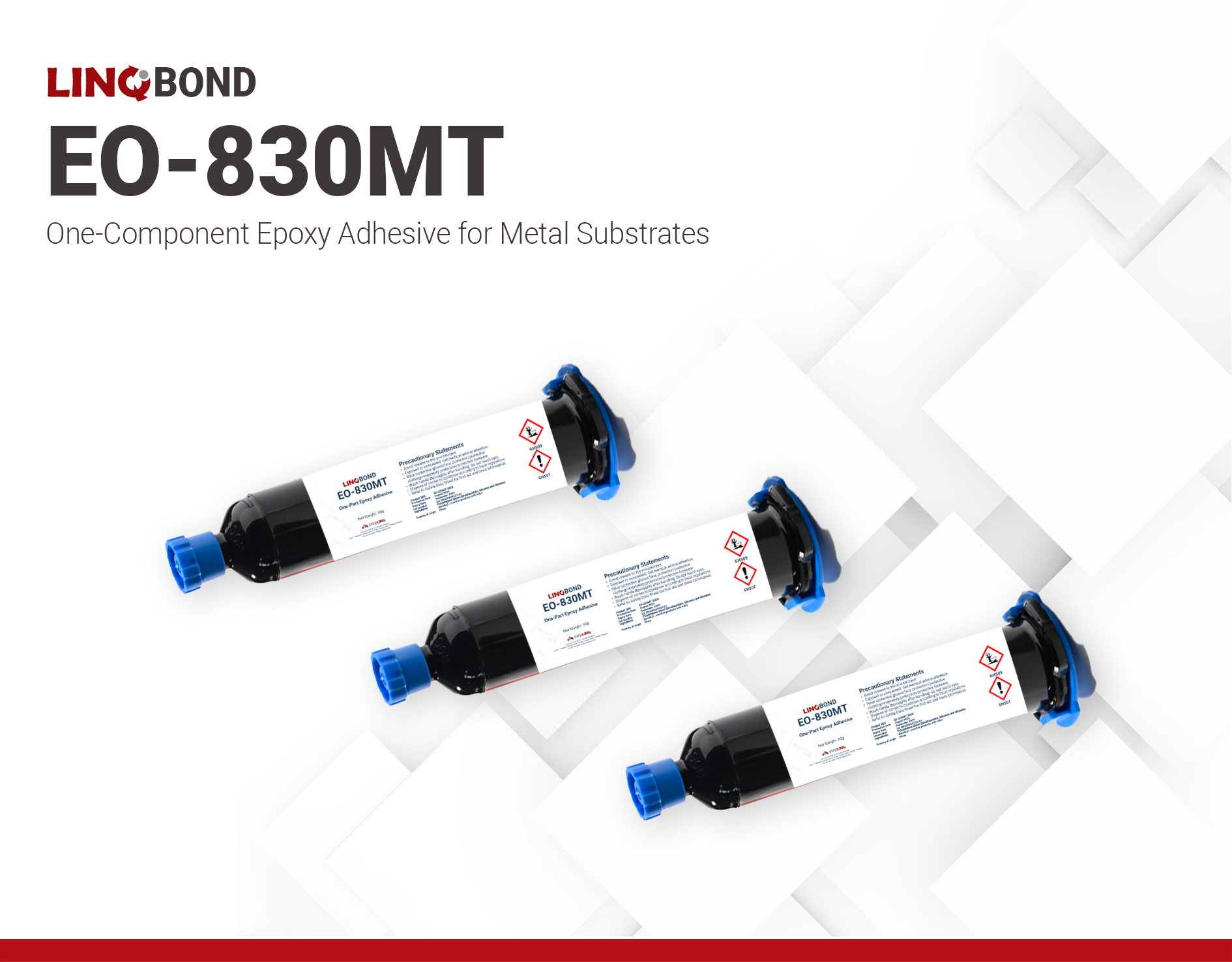EO-830MT | One-part Epoxy Adhesive for Metal Bonding
- High crack & fatigue resistance
- Excellent adhesion on metals
- RoHS compliant
Product Description
LINQBOND EO-830MT is a single-component, thermosetting epoxy adhesive formulated for robust structural bonding of metallic substrates to disparate materials, including ceramics and glass fibers. EO-830MT exhibits superior resistance to crack propagation and fatigue, coupled with high cohesive strength and tensile shear adhesion. Its material properties make it suitable for applications requiring exceptional long-term reliability and operational durability.
LINQBOND EO-830MT is characterized by an extended ambient temperature working life and achieves optimal cross-linking via thermal curing at temperatures exceeding 120 °C. It also demonstrates a high thixotropic index, providing excellent sag resistance during application and post-dispense fixturing. Furthermore, this product is compliant with major environmental directives, including the RoHS 2011/65/EU Directive.
Product Applications
Bonding of metals to ceramics, glass fibers, and composite materials
Technical Specifications
| General Properties | |
| Appearance Appearance Appearance at room temperature. | Black liquid |
| Pot Life Pot Life Pot life is the amount of time it takes for the viscosity of a material to double (or quadruple for lower viscosity materials) in room temperature after a material is mixed. It is closely related to work life but it is not application dependent, less precise and more of a general indication of how fast a system is going to cure. | 120 hours |
| Physical Properties | |
| Thixotropic index Thixotropic index Thixotropic Index is a ratio of a material s viscosity at two different speeds in Ambient temperature, generally different by a factor of ten. A thixotropic material s viscosity will decrease as agitation or pressure is increased. It indicates the capability of a material to hold its shape. Mayonnaise is a great example of this. It holds its shape very well, but when a shear stress is applied, the material easily spreads. It helps in choosing a material in accordance to the application, dispense method and viscosity of a material. | 2.2 |
| Viscosity Viscosity Viscosity is a measurement of a fluid’s resistance to flow. Viscosity is commonly measured in centiPoise (cP). One cP is defined as the viscosity of water and all other viscosities are derived from this base. MPa is another common unit with a 1:1 conversion to cP. A product like honey would have a much higher viscosity -around 10,000 cPs- compared to water. As a result, honey would flow much slower out of a tipped glass than water would. The viscosity of a material can be decreased with an increase in temperature in order to better suit an application | 600,000 mPa.s |
Additional Information
Directions for Use
Make sure that the substrate is clean and free of contaminants, such as dirt, grease, or mold release agents. A simple solvent wipe is often sufficient.
Before use, allow the sealed container to equilibrate to room temperature (14–34 °C) for 1–2 hours.
Cure time will depend on actual production parts and equipment such as part geometry, materials, bondline thickness and the oven temperature.
Curing profiles should be considered carefully in specific application to avoid extreme heat release and consider gradually cooling to minimize the thermal stress.
For maximum bonding strength and properties, apply the adhesive evenly to one or both surfaces to be joined, increase the curing temperature or prolong the curing time.



